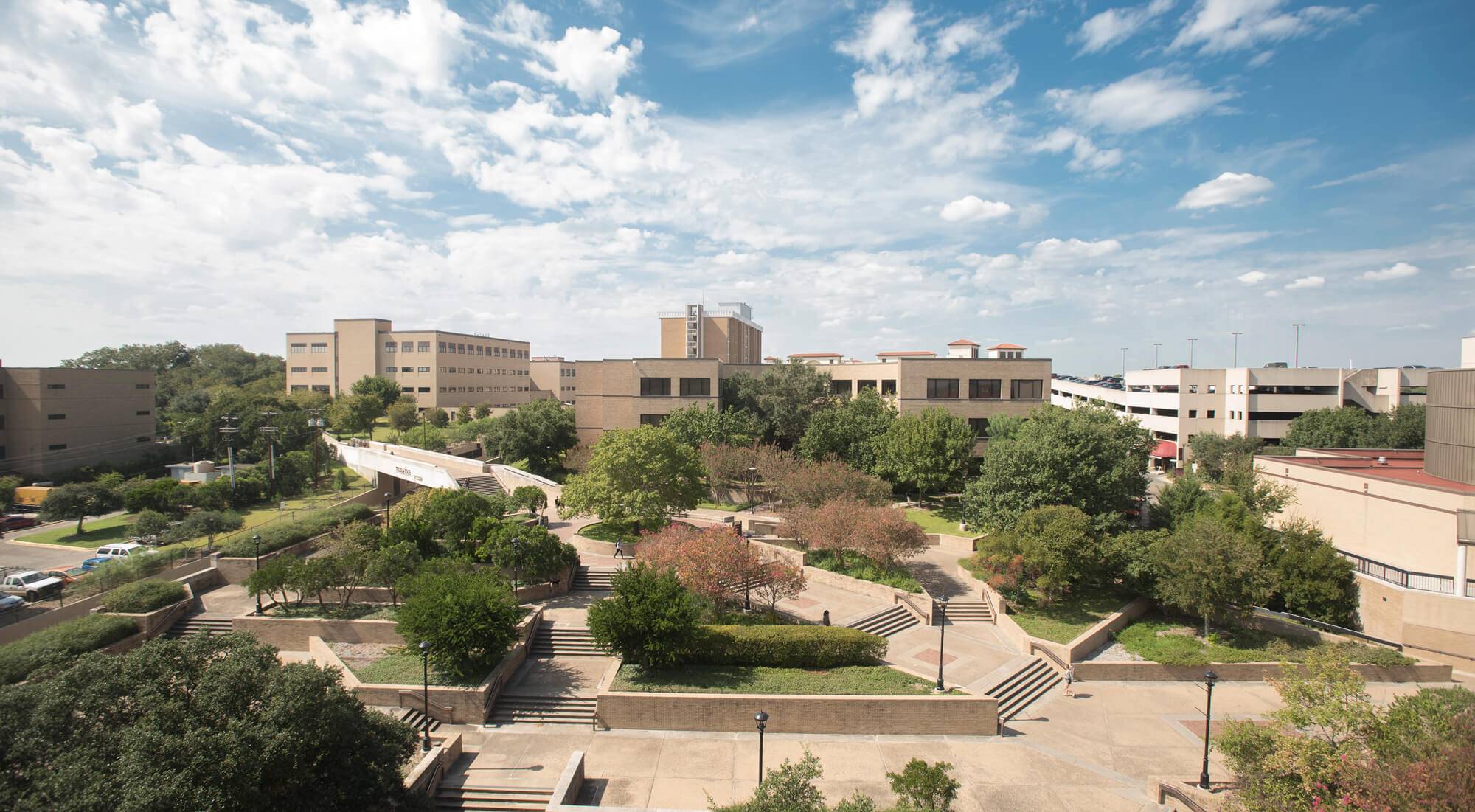Majors
Undergraduate Degrees
The College of Health Professions offers undergraduate degrees in the following areas: Clinical Laboratory Science, Communication Disorders, Healthcare Administration, Health Information Management, Health Sciences, Nursing, Radiation Therapy, and Respiratory Care. Explore these majors below.
Filter Panel
-
San Marcos Campus
-
Round Rock Campus
-
Online
-
Communication Disorders
Speech-language pathologists, also known as speech therapists, are healthcare professionals who are trained to evaluate and treat children and adults with speech, hearing, language and swallowing problems.
-
Healthcare Administration
Healthcare administration is the study of management theory, practice, skills, and attitudes applied to healthcare organizations. Unique characteristics of healthcare organizations include medical staffs, third party payers, and trusting customers. Healthcare administrators manage employees, prepare and maintain budgets, procure resources and perform other administrative functions so that the clinical professionals can provide their services.
-
Health Information Management
Health Information Management improves the quality of health care by ensuring that the best information is available to make any healthcare decision. HIM professionals manage healthcare data and information resources. The profession encompasses services in planning, collecting, aggregating, analyzing, and disseminating individual patient and aggregate clinical data. It serves the healthcare industry including: patient care organizations, payers, research and policy agencies, and other healthcare related industries.
-
Health Sciences
The Bachelor of Science with a major in Health Sciences is a unique option for students interested in health care. The program prepares students for entry-level positions in healthcare management. Students can also choose to complete prerequisites for competitive professional or graduate programs, such as Physical Therapy. Health Sciences also provides an option for students who apply to other competitive programs in the College of Health Professions and are not admitted. The prerequisites for every undergraduate program in Health Professions are included in the Health Sciences degree plan. Students who apply and are not admitted to other Health Professions programs can change their major to Health Sciences and the prerequisites they completed will apply to their Health Sciences major, which will help them stay on track for graduation. Health Sciences has open enrollment, meaning any student can declare the major regardless of their GPA or number of hours completed.
-
Medical Laboratory Science
The medical laboratory scientist, also known as a medical technologist plays a major role in the diagnosis, treatment, and prevention of disease. Medical laboratory scientists use sophisticated laboratory instruments to perform tests in microbiology, immunology, immunohematology, hematology, and clinical chemistry.
-
Nursing
The St. David's School of Nursing prepares graduates to sit for the National Council Licensure Examination for Registered Nurses (NCLE-RN) and to meet the minimum competencies for beginning practice as a Registered Nurse.
Registered Nurses (RNs) observe patients to assess symptoms, reactions to treatment, and progress. They administer medications, perform therapeutic procedures, and instruct patients and their families in proper healthcare practices. RNs supervise licensed vocational nurses, nursing assistants, patient care assistants, and home health aides. Working in collaboration with physicians and other members of the healthcare team, RNs develop and implement a plan of care to help the patient achieve optimal health.
Retrieved from Texas H.O.T. Jobs (2022)
-
Radiation Therapy
The radiation therapist is a key member of the professional team which uses various forms of radiation to treat cancer patients. The practice of radiation therapy is performed by competent radiation therapists who deliver care to the patient in the therapeutic setting and are responsible for the simulation, treatment planning and administration of a prescribed course of radiation therapy to diminish or eradicate malignant disease. Radiation therapists assume direct responsibility for the well-being of the patient. Because of sustained contact patients, the radiation therapist has considerable responsibility in patient care, dietary counseling and treatment evaluation. The radiation therapist must also appreciate the significant psychological impact that cancer has on patients and their families.
-
Respiratory Care
Respiratory therapists, also known as respiratory care practitioners, are skilled in assessing patients with breathing disorders in the emergency room, intensive care units, and many other areas in healthcare facilities. Respiratory therapists work directly with physicians on newborn, pediatric or adult patients to analyze oxygen levels and breathing difficulty. Therapists have a well-defined scope of practice and are considered specialists in the area of life support equipment and its applications.

